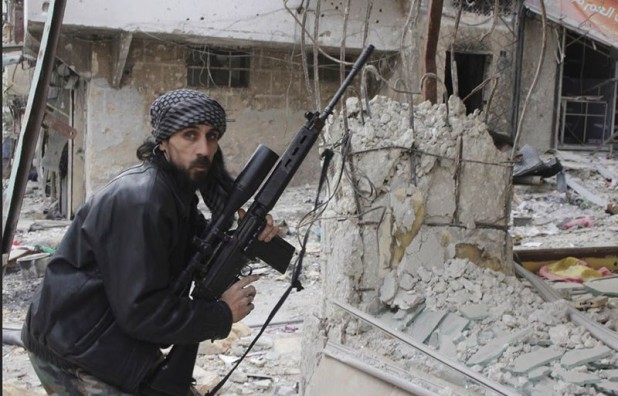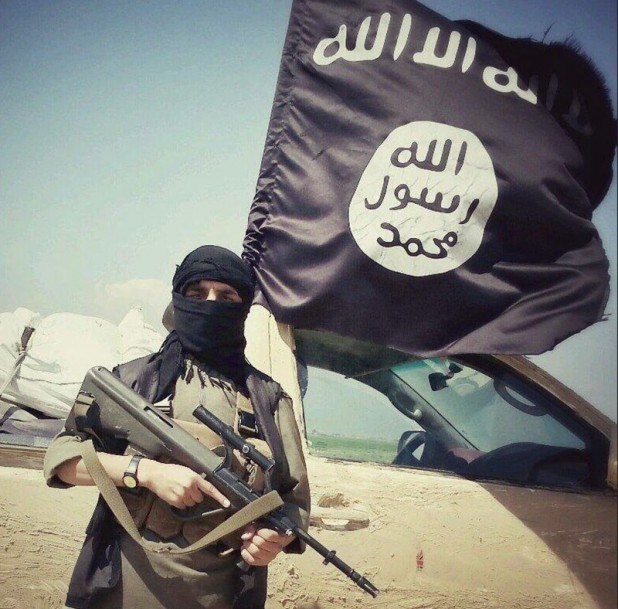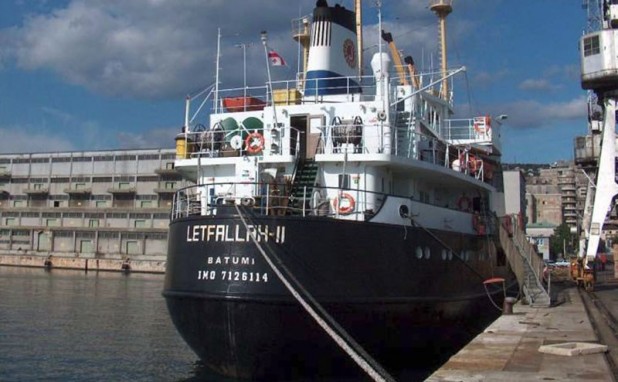The New Observer
December 10, 2015
The Islamic State (ISIS) has almost exclusively been armed by the United States government and its allies—Saudi Arabia, Qatar, and Turkey—a new Amnesty International report has revealed.
Titled Taking Stock: The Arming of Islamic State, December 2015, the Amnesty International report revealed that ISIS “deploys a substantial arsenal of arms and ammunition, designed or manufactured in more than 25 countries.”
It states that the bulk of the arms currently in ISIS possession were seized from Iraqi military stocks or have been sold to them by corrupt Iraqi officials.
But, the report states, a significant number of ISIS weapons have been derived directly from US arms shipments to “moderate Syrian rebels” and, even more shockingly, direct transfers organized by Saudi Arabia, Qatar, and Turkey.
IS has been able to seize so many Iraqi weapons, the report said, because of the American-led invasion of Iraq.
The US invasion of Iraq—carried out under the direction of the Jewish lobby—led to a decision to “disband the Iraqi army, estimated at around 400,000 personnel,” which, the Amnesty report said, “meant that many tens of thousands of individuals returned home or went into hiding with their weapons.”
In addition, the report continued, Iraqi civilians and armed groups that emerged following the US invasion “looted Iraqi military and police weapons caches as coalition forces struggled to maintain effective control of military stocks.”
Despite the chaos and endemic corruption which characterizes almost all Second and Third World nations, the USA and other coalition members transferred more than one million infantry weapons and pistols with millions of rounds of ammunition to the Iraqi armed forces from 2003 to 2007, the report said.
Because the post-Saddam Hussein Iraqi army was “poorly structured, corrupt, and ill-disciplined,” Amnesty said, “hundreds of thousands of those weapons went missing and are still unaccounted for.”
The report then went on to detail Turkey’s role in arming ISIS—a fact which is of great significance when it is borne in mind that Angela Merkel, David Cameron, and other European Union leaders have promised to “fast track” the Turkish state’s entry in the EU.
The Amnesty report says there is a vast “illicit trade of weapons, ammunition, and dual-use goods (civilian goods that may have military applications) over the Turkish border” to ISIS.
For example, the report says, on May 29, 2015, the Turkish newspaper Cumhuriyet published photos and video footage of a convoy of trucks, leased by the Turkish National Intelligence Organization (MIT), carrying arms for “rebel groups” in Syria in January 2015.
According to the report, the convoy was stopped and inspected by Turkish officials and was said to be carrying 1,000 mortars, 1,000 shells, 50,000 machine gun cartridges, and 30,000 heavy machine gun cartridges, hidden under medical supplies.
Turkish President Recep Erdogan however denied that the trucks contained arms, claiming that they were “carrying aid for people of Turkish decent in Syria.”
Erdogan’s lie was exposed in July 2015, when four prosecutors and a commander of the local gendarmerie, who stopped the trucks and ordered their search, were indicted on charges of obtaining/disclosing secret information, and “attempting to overthrow the government of the Turkish Republic through use of violence and coercion,” the Amnesty report explained.
Further to this incident, the report continued, in November 2015 a court in Istanbul charged Cumhuriyet’s editor-in-chief and Ankara bureau-in-chief with “divulging state secrets,”—further evidence of the Turkish state’s involvement in promoting terrorism.
Saudi Arabia’s role in arming ISIS is also discussed in the Amnesty report. In January 2013, photographs emerged of former Yugoslav infantry weapons, including self-loading rifles, grenade launchers, machine guns, mortars, and anti-tank rockets stockpiled and in use near Daraa, in the southwest of Syria.
Amnesty revealed that these weapons had been transferred from Croatia to the Free Syrian Army, on Royal Saudi Air Force C-130 transporters via Turkey and Jordan, in a series of shipments financed by Saudi Arabia in late 2012 or early 2013.
Where exactly these weapons ended up was revealed in June 2014, when many of the Yugoslav-origin guns were captured from ISIS by the Kurdish People’s Protection Units in the north of Syria.
Qatar, another US Gulf state ally, is also heavily involved in arming ISIS. This state—where Sharia law is the only official legal system—supplies ISIS by procuring weapons from China, Belgium, Libya, and even the Sudan and shipping them directly into Syria, the Amnesty report revealed.
For example, in October 2014, ISIS released images of a Chinese FN-6 Man-portable air-defense system (MANPADS) being used against an Iraqi military helicopter, near Bayji. These weapons were proven to have come from a consignment purchased by Qatar from Sudan, and supplied via Turkey to Syria.
Furthermore, a UN investigation revealed that on April 27, 2012, the Lebanese authorities seized a shipment of arms and ammunition on board the Letfallah II cargo ship near the port of Tripoli, Lebanon.
It transpired that the weapons had been loaded in Misrata, Libya, and included SA-24 short range surface-to-air missiles and SA-7b man-portable air defense systems, anti-tank guided missiles, various types of smaller weapons, and ammunition.
One of the weapon types found were Belgian-made FAL rifles. The Belgian government confirmed that the rifles had been exported to Qatar on December 21, 1979.
The UN investigation concluded that: “the rifle is likely to be part of matériel deliveries made by Qatar during the uprising [in Libya]” which had “since been illicitly transferred out of Libya, including toward other conflict zones.”

The Amnesty report revealed that FAL rifles were subsequently captured from IS fighters by Kurdish People’s Protection Units near Kobane. In addition, they were loaded with a type of Pakistani ammunition that, according to the UN, had been previously supplied by Qatar to Libya, and had also been found on board the Letfallah II.
ISIS is therefore today a military force because of American foreign policy in the Middle East. More than anyone else on earth, George W. Bush and Barack Obama are therefore responsible for ISIS’s formidable weapons stores.
 Daily Stormer The Most Censored Publication in History
Daily Stormer The Most Censored Publication in History




